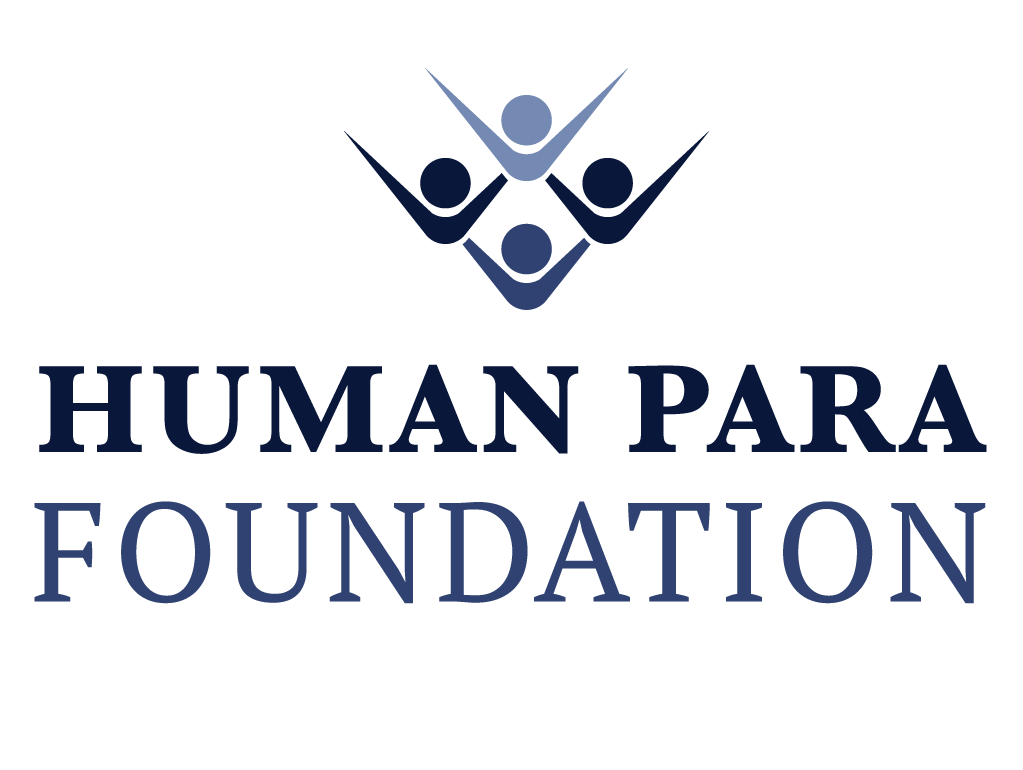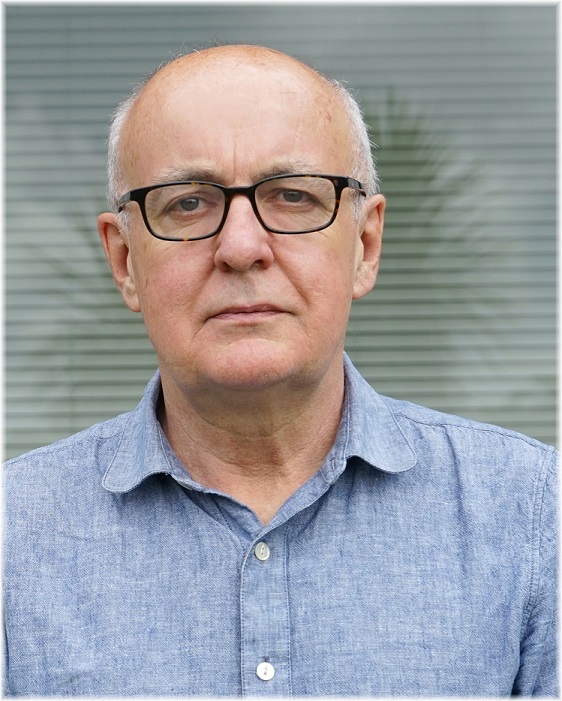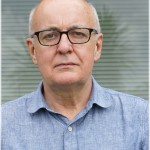 In this joint presentation, Prof. Borody and Dr. Martin present a case of severe fistulizing Crohn’s disease which was healed with a combination of antibiotics, hyperbaric oxygen therapy and surgery. Powerpoint slides follow the video.
In this joint presentation, Prof. Borody and Dr. Martin present a case of severe fistulizing Crohn’s disease which was healed with a combination of antibiotics, hyperbaric oxygen therapy and surgery. Powerpoint slides follow the video.


29 Nov 2018 In 2018 Berkeley By Moderator
 In this joint presentation, Prof. Borody and Dr. Martin present a case of severe fistulizing Crohn’s disease which was healed with a combination of antibiotics, hyperbaric oxygen therapy and surgery. Powerpoint slides follow the video.
In this joint presentation, Prof. Borody and Dr. Martin present a case of severe fistulizing Crohn’s disease which was healed with a combination of antibiotics, hyperbaric oxygen therapy and surgery. Powerpoint slides follow the video.

26 Nov 2018 In 2018 Berkeley By Moderator
Featuring the world’s leading experts on this topic, Prof. Thomas Borody, Dr. William Chamberlin and Dr. Ira Shafran, this panel discusses antibiotic use in gastroenterology practice and answers audience questions.

25 Nov 2018 In News By Moderator
 November 27th marks the 2nd year of Human Para’s #GivingTuesday campaign. 2017 was a huge success, raising $9,254.26 to kick off the Crohn’s/MAP Testing Study.
Human Para’s #GivingTuesday2018 campaign is hoping to raise $5,000 to fund our next MAP research project. After the Berkeley conference and discussion by the Board, we are actively seeking partners for a PEDIATRIC testing study. Details will be released as soon as they are finalized, but be assured: ALL funds raised on #GivingTuesday will go directly to MAP research.
November 27th marks the 2nd year of Human Para’s #GivingTuesday campaign. 2017 was a huge success, raising $9,254.26 to kick off the Crohn’s/MAP Testing Study.
Human Para’s #GivingTuesday2018 campaign is hoping to raise $5,000 to fund our next MAP research project. After the Berkeley conference and discussion by the Board, we are actively seeking partners for a PEDIATRIC testing study. Details will be released as soon as they are finalized, but be assured: ALL funds raised on #GivingTuesday will go directly to MAP research.

19 Nov 2018 In 2018 Berkeley By Moderator
Dr. J. Todd Kuenstner reports preliminary results of the MAP/Crohn’s disease testing study, which found that viable MAP organisms were detected by phage assay in 54.6% of the 194 subjects in the study. The study will remain blinded until March 2019, when all testing is complete. Publication is expected in July 2019. Thank you to everyone who has made this study possible. To all of the Crohn’s and control subject participants, to the researchers who have donated their time and expertise, and to our Human Para community who have donated time and resources to this endeavor. A special note of thanks to Valerie Joly of Crohn’s Warrior Fights and the Denver, NC community for hosting a golf tournament which raised a whopping $22,678.32, and funded the majority of the study. We couldn’t have done it without all of you!
28 Oct 2018 In News By Moderator
 Human Paratuberculosis Foundation is dedicated to providing the most up-to-date information in our field to assist patients around the world in making informed decisions about their treatment. We are grateful for the support of this community and look forward to taking this journey together.
Read all the latest news and research about Mycobacterium avium subsp. paratuberculosis (MAP) and the treatment of Crohn’s and other diseases using AMAT and other therapies. Enjoy!
Human Paratuberculosis Foundation is dedicated to providing the most up-to-date information in our field to assist patients around the world in making informed decisions about their treatment. We are grateful for the support of this community and look forward to taking this journey together.
Read all the latest news and research about Mycobacterium avium subsp. paratuberculosis (MAP) and the treatment of Crohn’s and other diseases using AMAT and other therapies. Enjoy!

23 Oct 2018 In News By Moderator
In March 2018, the American College of Gastroenterology (ACG) released the 2018 Guidelines for the treatment of Crohn’s Disease (CD). Their conclusion, based on misinterpreted studies, that antimycobacterial therapy was not effective in inducing remission or mucosal healing in Crohn’s disease patients (page 498) prompted a response by some of the doctors in the Human Para community who have used AMAT with success. Read the letter that was published this week in the latest issue of Nature’s American Journal of Gastroenterology.

21 Oct 2018 In 2018 Berkeley By Moderator
In this presentation, Dr. William Chamberlin describes two Crohn’s disease patients who have found long term healing. The first, an adult patient, has altered the traditional antibiotic regimen to avoid side effects and keep the disease in deep remission. The second is a 10 year old pediatric patient who experienced remarkable healing on an antibiotic regimen.

19 Oct 2018 In 2018 Berkeley By Moderator
Dr. Hal Gunn is the founder and CEO of Qu Biologics, and has dedicated his professional life to understanding how to optimally support the body’s immune response to chronic disease. Dr. Gunn is recognized both nationally and internationally as a leader in the field of supportive cancer care, and is the founder and past-CEO of InspireHealth, Canada’s leading supportive oncology centres. Dr. Gunn obtained his Doctorate of Medicine from the University of British Columbia and remains on faculty at UBC’s School of Medicine. To learn more about QBECO and the study, please click on this link: https://www.quibd.com/

10 Oct 2018 In 2018 Berkeley By Moderator
Dr. Irene Grant is a Professor of Microbiology and Food Safety at Queen’s University in Belfast. Her long time research interest has been Mycobacterium avium subsp. paratuberculosis, its heat resistance, presence in milk and dairy products, and methods for its accurate detection and enumeration. She has published extensively on this subject and is recognized as an international authority on this potentially foodborne and zoonotic bacterium. In this presentation, Dr. Grant reports on some preliminary findings of the Crohn’s/MAP Testing Study funded by Human Para, and describes her phage assay technique used for the detection of MAP.

07 Oct 2018 In 2018 Berkeley By Moderator
 John Aitken is a free-lance microbiologist based out of Christchurch, New Zealand and the senior director of Otakaro Pathways, Ltd. Prior to his current position, he worked in medical microbiology for public and private providers for more than 40 years. His particular areas of interest are antimicrobial resistance and emerging bacterial infectious diseases. John is presently involved in research surrounding the relationship between immune diseases and the Mycobacterium species.
Here, John discusses his latest research into mycobacterium species found in Crohn’s disease patients.
John Aitken is a free-lance microbiologist based out of Christchurch, New Zealand and the senior director of Otakaro Pathways, Ltd. Prior to his current position, he worked in medical microbiology for public and private providers for more than 40 years. His particular areas of interest are antimicrobial resistance and emerging bacterial infectious diseases. John is presently involved in research surrounding the relationship between immune diseases and the Mycobacterium species.
Here, John discusses his latest research into mycobacterium species found in Crohn’s disease patients.